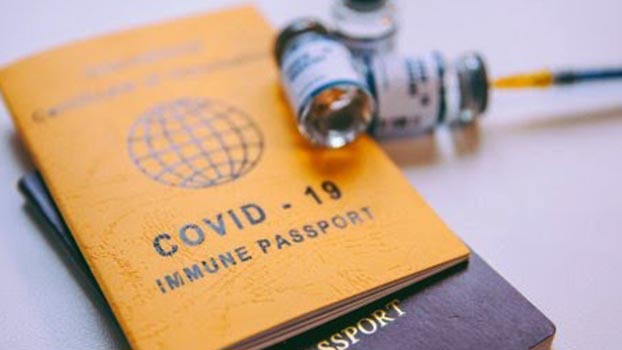International travel won’t rely on fancy vaccine passports
The best way to reopen borders fast is for rich countries to send vaccines to poor ones

Stephen L Carter
The World Health Agency has stepped into the controversy over vaccine passports, announcing its opposition. Not enough is known about whether the vaccines prevent transmission, says the WHO. And vaccine passports wouldn’t be fair to poorer countries where vaccination has been slow. They might discriminate against people who can’t be vaccinated. Although the agency has been consistently late to the Covid party, this time, the WHO is probably right, albeit not entirely for the reasons it gives.
Yes, it’s true that vaccine passports would surely entrench the inequality caused by the initial distribution of inoculations. Wealthier countries, as one might expect, have purchased the lion’s share of available doses. The poorer nations are scrambling. To demand some sort of biometric or QR code as proof of vaccination as a condition of international travel would be a poor advertisement for the West’s supposed commitment to equity. However, the claim of inequality might be overcome if such passports are really necessary to economic recovery — as the travel and hospitality industries insist they are. But are they correct?
Maybe not. Consider Godzilla v. Kong.
Seriously.
The film earned close to $50 million domestically in its opening weekend, a figure nobody expected at a time when, supposedly, audiences are too scared to go to the movies. Around the world, the monster flick had close to $300 million in receipts in its first week of release.
But maybe we shouldn’t be surprised. Evidence is growing that the public is a lot less scared than it was a few months ago. As restaurants reopen, people are dining out in droves. Shopping malls are crowded. Popular demand for freedom to live life is at last wearing down the restriction-by-fiat that has characterized so much of the response to the pandemic.
I say this not in criticism of public health officials but to point out that people can often make risk-versus-reward decisions on their own. It’s true, as many suggest, that our acceptance of risk might pose risks for others. But the burden of showing that these externalities are worth the burdens of special passports rests on the supporters.
They may have a hard time making their case.
For as long as vaccines have existed, people have worried about how to show that someone’s had one. Back in 1880, a letter to a medical journal complained that it was impossible to know for sure whether the smallpox vaccination worked because the only “proof of vaccination” was the scar left by the shot — a scar that the onset of disease might render invisible. Yet the world survived.
For over a century, we’ve accepted as evidence of vaccination for schoolchildren a scrap of paper with a scrawled signature, or even, at one time, the simple declaration of the child’s parents. Overseas travelers have long been familiar with the yellow International Certificate of Vaccination, typically filled out in an inscrutable hand. If proof of vaccination matters, why do we now need a fancy QR code?
Yes, the little CDC-approved cards that show one had received the Covid-19 vaccine look easy to forge. Or even to steal: At the site where my wife and I received our shots, I noticed a package of new, unmarked cards on an unguarded shelf near the rear exit.
But the fact that it’s possible to forge or steal the cards doesn’t prove that there exists an epidemic of forgery or theft. Here I feel the same way I do about voter ID laws: Before we march any further down the road toward a society where we’re constantly proving our identities, supporters should at least be able to show with something more than anecdotes that a problem actually exists. Yet even though we’ve survived for over a century with relatively simple proofs of vaccination against a variety of dangerous viruses, I’ve been unable to find a single reported case involving their forgery. 1
True, in the current crisis, fake certificates have been offered for sale on the dark web for $250 or more, but we don’t know how many takers there have been, and it’s hard to imagine that whatever demand they are sopping up will survive the widespread availability of the vaccine itself, which is free.
This in turn suggests that distributing more doses globally is the cheapest and easiest way to prevent any potential forgery. And that would have the not-insignificant benefit of helping poorer countries defeat the pandemic.
There have been numerous prosecutions for forging the documents needed to obtain a vaccination; and many others for falsely claiming that a substance was a vaccine when it was not. As to false claims of vaccination, the closest case I found involved pigs and cholera, but even there the animals had indeed been vaccinated; the alleged false statement was that they had never been sick before being inoculated.
(This column does not necessarily reflect the opinion of the editorial board of Bangladesh Post)
Stephen L. Carter is a Bloomberg Opinion columnist. He is a professor of law at Yale University and was a clerk to U.S. Supreme Court Justice Thurgood Marshall.
Source: Bloomberg




